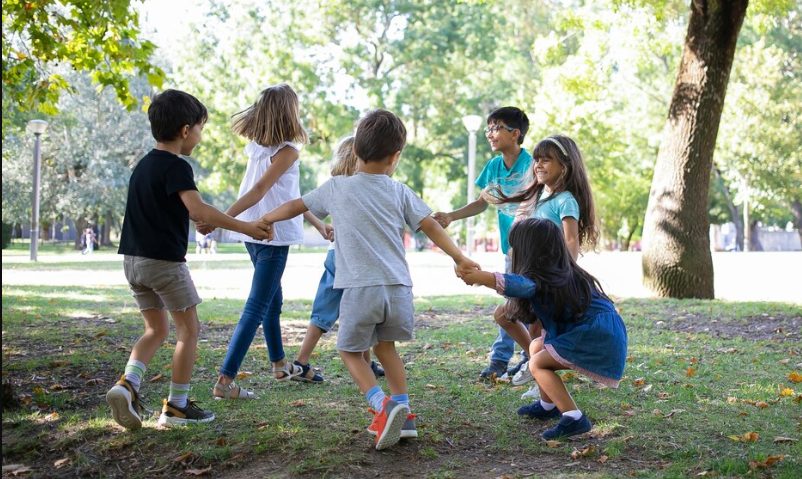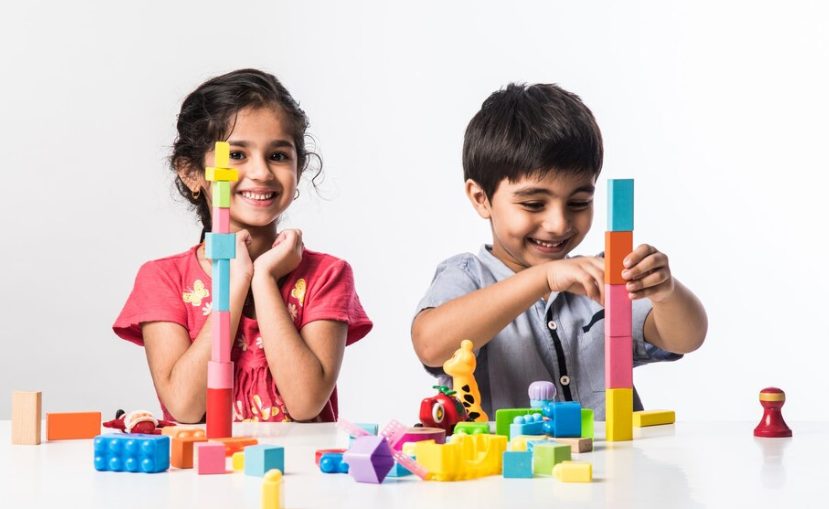
Think about this for a minute: Your child diagnosed with autism spectrum disorder (ASD) is giggling uncontrollably during a game of peek-a-boo, making eye contact, and actually wanting to play again!
Well, these moments aren’t just heartwarming, but powerful learning opportunities that can transform your child’s social development.
Teaching social skills to children with autism doesn’t have to feel like climbing Mount Everest in flip-flops.
In fact, play-based interventions offer a natural, joyful pathway to help your child develop crucial social connections while having genuine fun.
Why Play Matters More Than You Think
Research consistently shows that play-based autism interventions create remarkable outcomes. In fact, according to a comprehensive study published in the World Journal of Clinical Pediatrics, children who participated in structured play activities showed greater improvement in social communication skills compared to traditional teaching methods.
Think about it. When was the last time you learned something difficult under extreme stress? Probably never.
The same applies to your child.
Play reduces anxiety, increases motivation, and creates positive associations with social interaction. It’s like sneaking vegetables into a home-made tikki or pasta made from zucchini. Your child gets all the nutritional benefits without realizing they’re eating something “good for them.”
Schedule a FREE Consultation with our expert clinician now.
The Science Behind Social Skills Development in ASD
Children with autism often struggle with what researchers call “theory of mind” or understanding that others have thoughts, feelings, and perspectives different from their own.
This isn’t a character flaw but simply how their brains process social information.
Applied Behavior Analysis (ABA) techniques integrated into play activities help break down complex social concepts and sensory processing issues into manageable steps. For instance, when your child learns to take turns during a board game, they’re actually mastering fundamental skills like patience, prediction, and perspective-taking.
Proven Play-Based Strategies That Actually Work
- Turn-Taking Games: The Social Skills Superhighway
Simple games like rolling a ball back and forth teach essential autism social skills training concepts. Your child learns to wait, anticipate, and respond—skills that transfer directly to conversations and friendships.
Pro tip: Start with highly preferred activities. If your child loves trains, create turn-taking games with toy trains. Success builds motivation, and motivation builds more success.
- Imitation Activities: Monkey See, Monkey Learn
In addition to being just silly fun, mirror games are indeed neuroscience in action. When children on the spectrum practice imitation, they strengthen neural pathways responsible for social learning. In fact, research also shows that structured imitation activities can notably improve social reciprocity (source).
- Role-Playing Adventures
Transform everyday scenarios into exciting adventures. While playing “restaurant” teaches ordering, waiting, and social pleasantries, playing “doctor” introduces concepts of helping, empathy, compassion, and communication. These social skills interventions for autism feel like play but function as powerful learning laboratories.
The ABA Advantage in Play-Based Learning
Applied Behavior Analysis provides the scientific backbone for effective play interventions. ABA principles help identify which behaviors to reinforce, how to structure activities for success, and when to gradually increase social demands.
The beauty of combining ABA with play?
Your child doesn’t even realize they’re in “therapy.” They’re just having fun while building skills that will serve them throughout life. It’s like having a fun personal trainer who makes exercise feel like recess.
Creating Your Home Play Environment
Physical Space Setup: Designate a specific area for social play. This doesn’t require a complete room makeover and even a corner with consistent toy placement works. Predictability reduces anxiety and helps children with ASD focus on learning rather than processing environmental changes.
Choosing the Right Activities: Autism play therapy techniques work best when activities match your child’s interests and developmental level. Love puzzles? Create cooperative puzzle-solving games. Fascinated by colors? Design sorting and matching activities that require communication.
Timing Is Everything: Research indicates that children with ASD learn social skills most effectively during shorter, frequent sessions rather than lengthy, infrequent ones. Aim for 15-20 minute play sessions, 3-4 times daily. Think of it as social skills snacking instead of overwhelming social skills banquets.
Building Peer Relationships Through Structured Play
One of the biggest challenges parents face is helping their child with ASD develop friendships. Social skills for children with autism often require explicit teaching of skills that neurotypical children acquire naturally.
Start with parallel play, which can look like having children engage in similar activities side by side. Gradually introduce cooperative elements.
Measuring Progress: What Success Really Looks Like
Progress isn’t always dramatic. Sometimes it’s your child maintaining eye contact for an extra second, or remembering to say “thank you” without prompting. These small victories are actually massive neurological achievements.
Keep a simple progress journal. Note improvements in:
– Turn-taking patience
– Verbal and nonverbal communication
– Emotional regulation during play
– Initiation of social interactions
Common Challenges and Practical Solutions
“My child only wants to play alone”
Start where your child is comfortable. If they love lining up cars, sit nearby and line up your own cars. Gradually introduce interactive elements like “car crashes” or “traffic lights.”
“Meltdowns during social play”
Reduce demands temporarily. Social interaction can be overwhelming. Shorter sessions with clear endings (visual timers work wonders) help build tolerance gradually.
“Other children don’t understand”
Education is key. Brief, age-appropriate explanations help peers understand differences and develop empathy. Sometimes the best friendships bloom from understanding, not similarity.
Technology and Social Skills: Finding the Balance
While screen time often gets criticized, certain autism social skills apps and programs can supplement face-to-face interactions. The key is balance—technology as a tool, not a replacement for human connection.
Children who receive early, consistent social skills interventions show improved academic performance, reduced anxiety, and higher self-esteem throughout their lives. According to longitudinal research from the National Institute of Mental Health, early intervention can literally change the trajectory of a child’s development.
How Early Autism Ventures (EAV) Can Transform Your Child’s Journey
At Early Autism Ventures, we understand that every child with ASD is unique, with their own strengths, challenges, and unlimited potential. Our comprehensive approach combines evidence-based ABA therapy with innovative play-based interventions specifically designed for children with autism.
Our certified therapists work closely with families to create personalized programs that feel less like therapy and more like purposeful play. We provide:
- Individualized Assessment and Program Design: Every child receives a customized plan based on their specific needs and interests
- Parent Training and Support: We empower families with practical strategies they can implement at home
- Peer Interaction Programs: Structured opportunities for children to practice social skills with carefully selected peers
- Progress Monitoring: Regular assessments ensure interventions remain effective and goals are consistently met
- Collaborative Care: We work seamlessly with schools, medical providers, and other professionals in your child’s life
Our play-based approach has helped hundreds of children develop meaningful friendships, improve communication skills, and build confidence that extends far beyond our therapy sessions.
Your Child’s Social Success Story Starts Today
Every child with ASD has the potential to develop meaningful social connections. With the right support, evidence-based interventions, and a healthy dose of playful learning, your child can build the social skills they need to thrive.
The journey may have challenges, but you’re not walking it alone. Professional support, combined with your love and dedication, creates the perfect environment for growth.
Ready to make a difference in your child’s life?
Contact Early Autism Ventures today for a comprehensive evaluation and discover how our specialized play-based interventions can help your child develop the social skills they need for lifelong success.
Don’t wait—early intervention makes all the difference. Call us now at +91 8929153820 or schedule your FREE consultation now.



